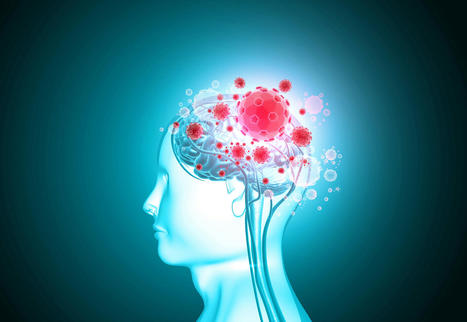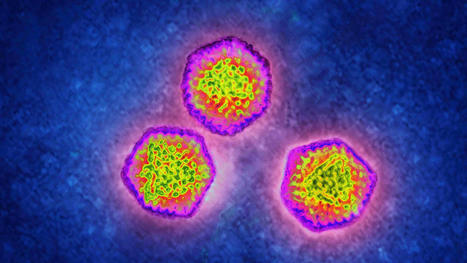A new Penn Medicine study finds components of the SARS-CoV-2 virus remain in the gut of some long COVID patients, causing persistent inflammation, vagus nerve dysfunction, and neurological symptoms. Patients with long COVID—the long-term symptoms like brain fog, fatigue, or memory loss in the months or years following COVID-19—can exhibit a reduction in circulating levels of the neurotransmitter serotonin, according to new research published in Cell. The study, led by researchers from the Perelman School of Medicine, sheds new light on the mechanisms of how persistent inflammation after contracting the SARS-CoV-2 virus can cause long-term neurological symptoms. “Many aspects of the basic biology underlying long COVID have remained unclear. As a result, we are lacking effective tools for the diagnosis and treatment of the disease,” says senior author Maayan Levy, an assistant professor of microbiology at Penn Medicine. “Our findings may not only help to untangle some of the mechanisms that contribute to long COVID, but also provide us with biomarkers that can help clinicians diagnose patients and objectively measure their response to individual treatments.”
In a collaboration between Penn’s departments of Microbiology, Pathology and Laboratory Medicine, and Physical Medicine and Rehabilitations’ Post COVID Assessment and Recovery Clinic, researchers evaluated the effects of long COVID in blood and stool samples from various clinical studies and in small animal models. The researchers found that when tryptophan absorption is reduced by persistent viral inflammation, serotonin is depleted, leading to disrupted vagus nerve signaling, which in turn can cause several of the symptoms associated with long COVID, such as memory loss. “Clinicians treating patients with long COVID have been relying on personal reports from those patients to determine if their symptoms are improving. Now, our research shows that there are biomarkers we may be able to use to match patients to treatments or clinical trials that address the specific causes of their long COVID symptoms, and more effectively assess their progress,” says co-senior author, Sara Cherry, a professor of pathology and laboratory medicine. The authors took this insight one step further, to identify if replenishing tryptophan or serotonin in patients who exhibit deficiencies could treat long COVID symptoms. They demonstrated that serotonin levels could be restored, and memory impairment reversed, through treatment with serotonin precursors or selective serotonin reuptake inhibitors.
Read more at Penn Medicine News.
Study published in Cell (Oct. 16, 2023):
https://doi.org/10.1016/j.cell.2023.09.013
Via Juan Lama



 Your new post is loading...
Your new post is loading...









